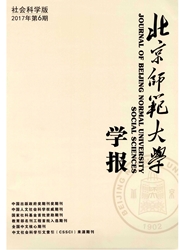

 中文摘要:
中文摘要:
近年来,中国在承接发达国家外包的同时,又大量进口发达国家产品作为中间投入,目前外包已经成为我国加速融入全球分工体系的重要媒介。但是,相比发达国家,我们对外包冲击劳动力市场的认识还很模糊,国外发展外包过程中劳动力市场的对应性调整会否也在中国这样一个劳动力禀赋丰裕的国家再次出现尚无定论。本文以中国发包方的视角,整体和分组检验了材料外包、服务外包和狭义材料外包对中国28个制造业行业内部工资差距的影响。结果表明,材料外包和狭义材料外包显著提升了我国制造业熟练劳动力的工资份额,而服务外包的影响不显著。随着制造业对进口中间投入品,特别是在技术密集型产品生产行业中来自本行业的中间投入品的需求迅速增加,熟练劳动力的需求和工资进一步上升。在初级产品生产行业中,国内R&D投资的增加扩大了相对工资差距,而技术进步的作用不显著;在劳动和资源密集型产品生产行业以及技术密集型产品生产行业中,资本节约型技术进步能够缩小相对工资差距,而进口贸易的R&D溢出对行业工资差距的扩大有显著的促进作用。
 英文摘要:
英文摘要:
This paper tests the total and sector impact of material outsourcing (MO), service outsourcing (SO), and narrow material outsourcing (NMO) on wage gap of 28 manufacturing industries in China. The results show that the wage gap in MO and NMO widen significantly, but the impact of SO is not. Meanwhile, the demand for imported intermediate inputs increases, in particular for the intermediate inputs from its own in technology intensive industry, but that for skilled labor and their wages also rise, In the primary production industries, domestic R&D increase to widen the wage gap, but the role of technological progress is not significant in the labor and resource intensive industries and technology intensive industries, however, the capital-saving technological progress relatively narrows wage gap, while R&D spillover from the import widen it significantly.
 同期刊论文项目
同期刊论文项目
 同项目期刊论文
同项目期刊论文
 期刊信息
期刊信息
